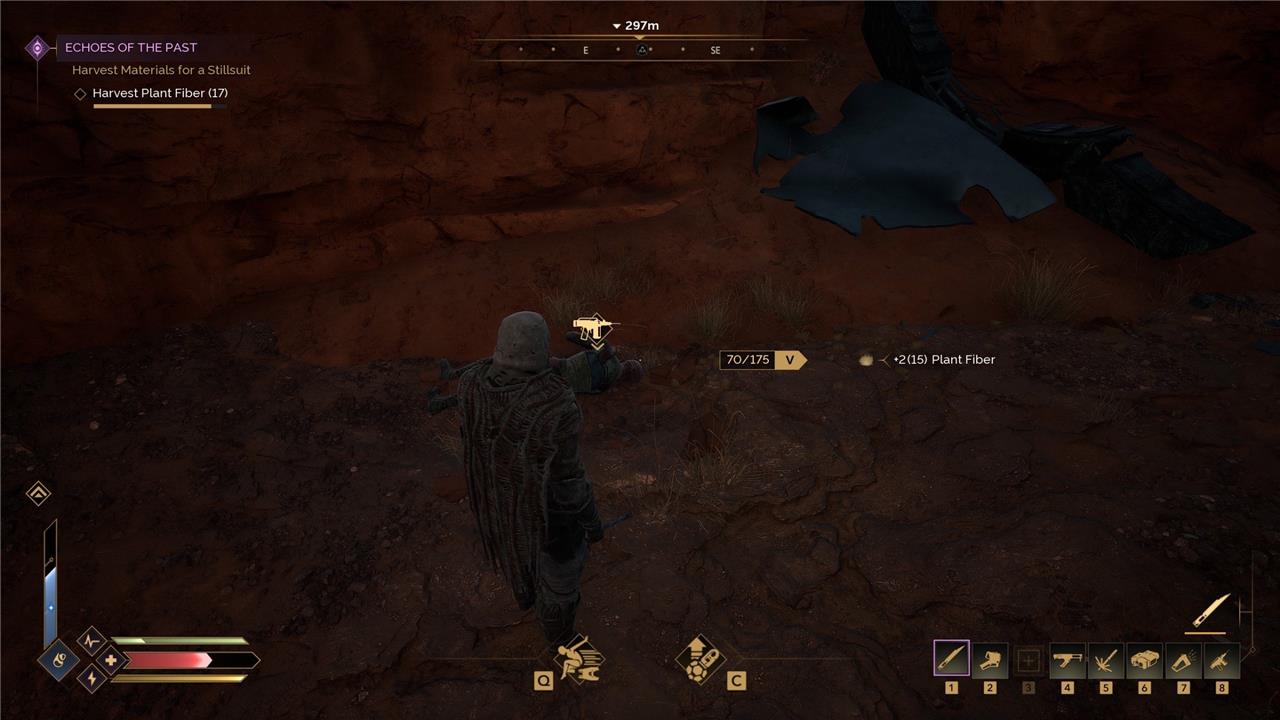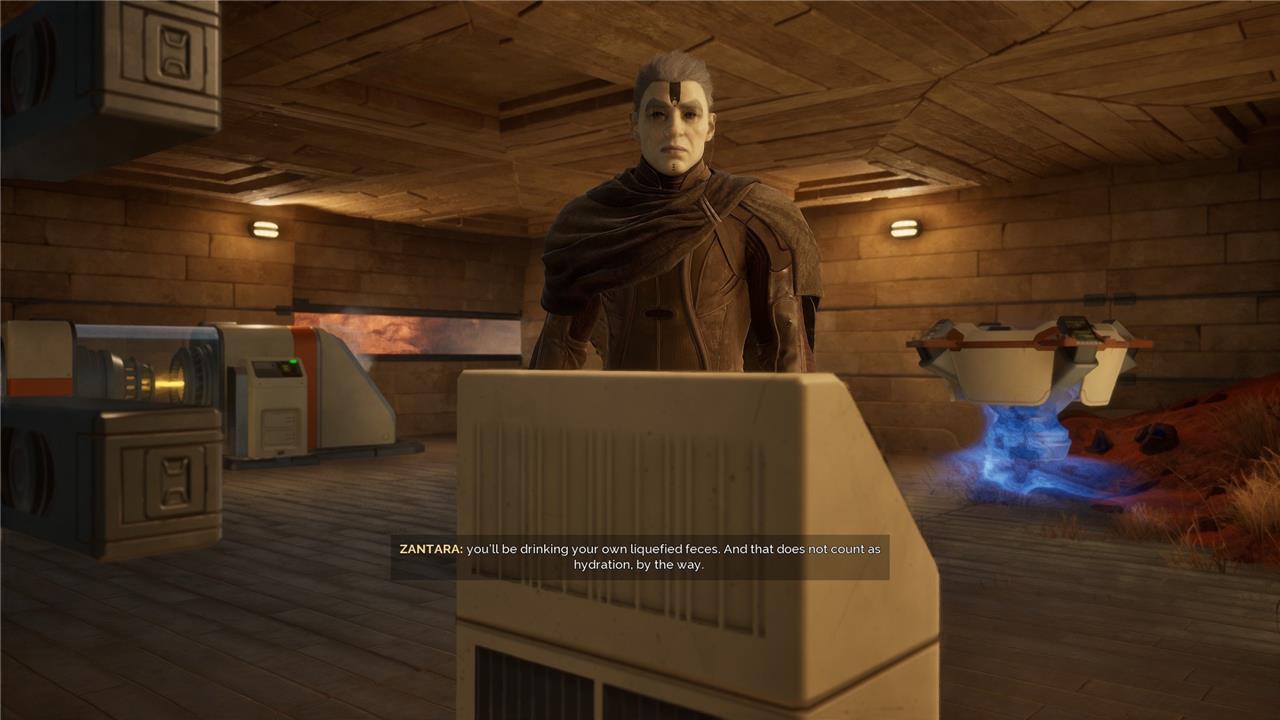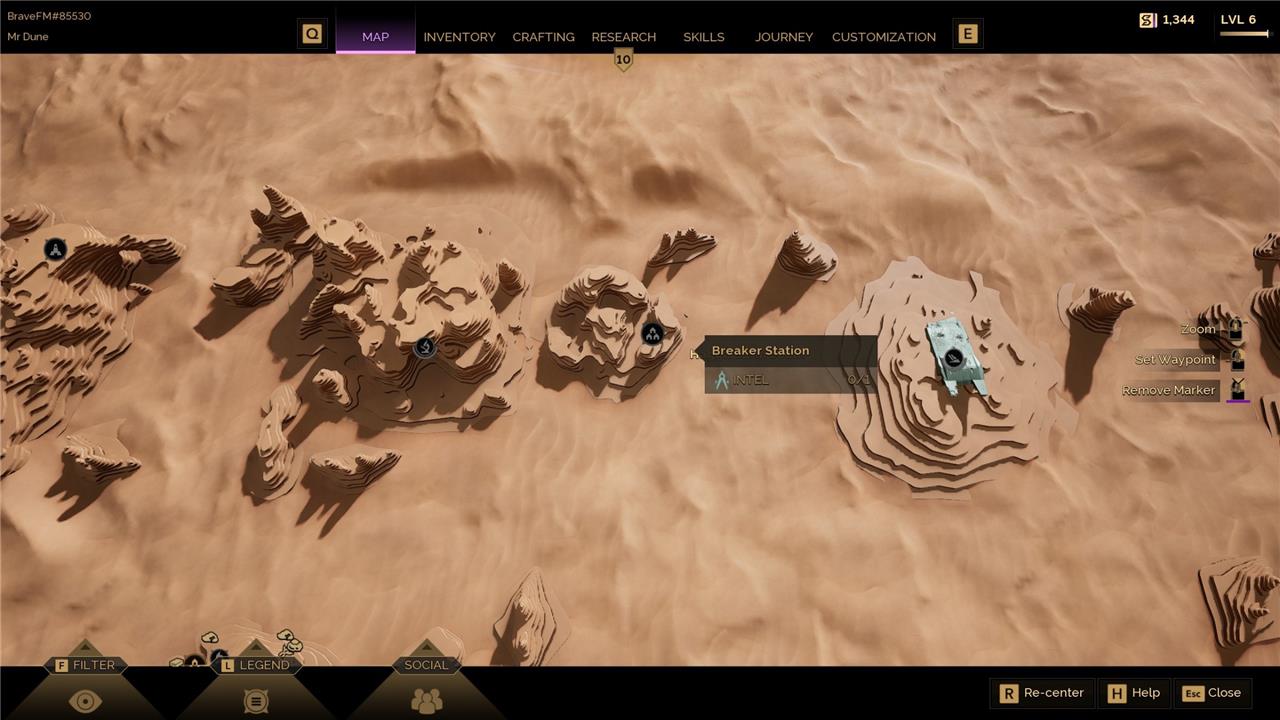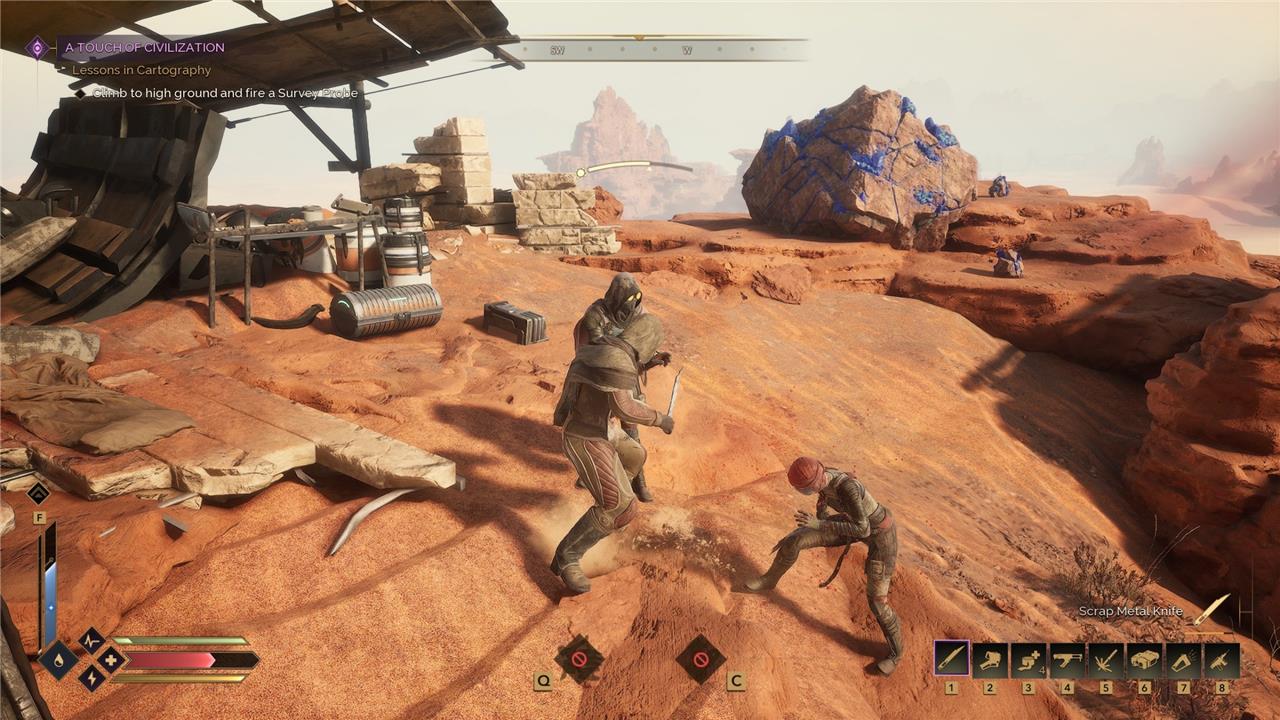Surviving on Arrakis is no simple feat-whether you’re battling sandworms, managing scarce water, or navigating hostile factions. Before you dive into Dune: Awakening, arm yourself with these 19 essential beginner’s tips to master the harsh desert, optimize your gameplay, and thrive in this vast open-world MMO survival experience. Your journey through the unforgiving dunes starts here.
If you’re just getting started in Dune: Awakening, the ins and outs of making it through each day on Arrakis might seem more than a little overwhelming. There’s a detailed prologue that walks you through some of the basics, but it doesn’t tell you everything and leaves a lot to the assumption that you’ll figure it out as you go along. Dune: Awakening is much more forgiving than some survival games, but not having to learn things the hard way means you can focus your time and resources on things that matter.
We’ve compiled a list of Dune: Awakening beginner tips and tricks to help get you started on Arrakis, everything from how to keep hydrated to the best skills to focus on early in the game.
1. Don’t build your base on the sand. Zantara, your guide, only tells you this after your first construction project, but if you build on the sand, the foundations will get swept away whenever a storm blows through.
2. Don’t get too attached to your first base, either. You’ll have to abandon it after making some story progress, and even though demolishing constructions will refund your building materials, carting everything you stored to your new base is a pain.
3. Focus on raising your faction reputation in between completing main and side quests. Raising faction reputation is key to unlocking some of Dune Awakening’s bigger features, including the option to buy your own Ornithopter.
4. Don’t neglect the main quest, either, as completing story quests unlocks new technologies and teaches you how to use some of Dune: Awakening’s more nuanced systems.

5. Kill scavengers and extract their blood whenever you can. It sounds gruesome, but their blood is the most reliable way to have fresh water on-hand after you craft the blood refiner.
6. Scavengers respawn after a short time, the same as resources, so you won’t lack opportunities to harvest fresh blood.
7. Pay attention to the sunstroke bar, and avoid letting it max out. Sunstroke won’t kill or damage you, but it does make you dehydrate more quickly. Dehydration lowers your stamina and, at full dehydration, you lose health.
8. Keep a stock of purified water on-hand at your base at all times. The Stillsuit’s hydration mechanism is a helpful top-up, but it charges too slowly to make it your primary water source.

9. Daytime exploration exposes you to dangerous heat, so if you have to go out before night falls, make sure you plot a path that includes areas where you can rest in shade.
10. Ignore your pistol for a while. Zantara makes a big deal out of using ranged weapons, but they’re incredibly weak for much of the early game. Knife attacks are much faster and safer unless you’re dealing with more than two enemies simultaneously.
11. Grab all the granite, plant fiber, copper, and metal you can find. These materials are required for building walls, foundations, and most other base- and progress-related machines and crafting recipes.
12. Craft a few storage chests early, and dump all your extra rocks, plants, and resources in there before heading out. Your base’s sub-fief has limited initial storage space, and you don’t want to have to waste or discard anything you find on Arrakis.

13. Once you scan an area and can examine nodes on the map, look for Intel nodes. Completing these rewards you with a lot of XP, and they’re usually in outposts or other areas with valuable resources to pick up.
14. Dying is less of an obstacle than you might think in most cases. You’ll respawn with every piece of equipment you died with and can return to collect your pack with all your resources.
15. If a sandworm kills you, though, you lose everything. Plan your trips across open sand carefully.
16. You can’t kill sandworms, so don’t try. The only options for dealing with them are “get eaten” or “run away.”

17. Falling from ledges or other high place can damage you, but never kill you. At worst, it drops your HP to critical, which isn’t ideal if enemies are nearby, but it does mean you can quickly get down from a high place without much worry.
18. It’s completely possible to play solo, even if group play makes things easier. You’ll just need to rely on item trades to cover gaps in your resource management.
What are the most overlooked strategies beginners should master first on Arrakis
The most overlooked beginner strategies to master first on Arrakis in Dune: Awakening focus primarily on survival fundamentals and efficient resource management rather than rushing into combat or deep desert exploration:
-
Prioritize securing water and shelter over fighting. Early survival hinges on hydration and safe refuge rather than engaging enemies or chasing quests immediately. Scout for oases and abandoned water stills and quickly loot them before resources vanish.
-
Learn to detect and avoid sandworms. If you see the characteristic sand explosion signaling an approaching worm, run toward rocks, cliffs, or use a vehicle to escape. Getting caught can wipe your inventory and set back your progress significantly.
-
Rush early crafting of basic tools like the shovel and moisture collector. These vastly improve your efficiency in finding resources and water caches critical to survival.
-
Manage your inventory smartly by using storage chests and avoid carrying unnecessary items. This saves space and expedites crafting.
-
Craft a vehicle as soon as possible. It cuts down travel time on the harsh desert dramatically, making resource gathering and escaping threats much easier.
-
Use the survey tool from high ground to map and plan your movement accurately across the zone. This makes exploration safer and more strategic by revealing nearby resources and hazards.
-
Set respawn points and place respawn beacons around your base and key locations. This greatly reduces recovery time after dying far from your base.
-
Expand your base cautiously, upgrading slowly rather than overcommitting early on. Sandstorms and raiders can destroy early large bases, setting you back.
In summary, these overlooked yet essential strategies revolve around stabilizing your basic needs and situational awareness first to reduce avoidable deaths, followed by strategic exploration and base management for steady progression on Arrakis.
How can mastering water management boost my survival on Arrakis
Mastering water management is absolutely critical to boosting your survival on Arrakis in Dune: Awakening because water is both scarce and vital for every aspect of your gameplay. Here’s how effective water management improves your chances of survival:
-
Sustained Hydration Extends Exploration and Combat: Proper hydration boosts your stamina, allowing you to explore longer and perform better in combat under harsh desert conditions. You avoid the limiting factor of dehydration that cuts your activity short.
-
Water Discipline Technologies Reduce Dependence on Frequent Refills: Investing in research and crafting such as stillsuits, blood extractors/purifiers, and dew harvesters lets you recycle body moisture, extract water from blood, and efficiently gather dew. This reduces water consumption and extends your time away from base.
-
Strategic Water Storage Prepares You for Long Journeys: Building and upgrading storage containers like cisterns help you stockpile water reserves. Having water in reserve means you can plan longer base expansions and desert expeditions without constant watering stops.
-
Efficient Water Collection Maximizes Resource Gain: Using tools like Dew Reapers and farming dew from Primrose plants at optimal times yields the most water with less time and exposure to danger.
-
Emergency Water Supplies Support Survival in Hostile Encounters: Technologies such as the Blood Purifier let you convert enemy blood into water during combat, which is lifesaving though costly to health. This gives you a critical edge in surviving battles far from your base.
-
Water Management Enables Better Base and Resource Planning: Knowing your water needs allows you to maintain a steady operational buffer, schedule farming rotations, and trade water strategically with others. This stability supports ambitious projects and base defense.
In summary, mastering water management on Arrakis in Dune: Awakening means you can maintain hydration, extend exploration and combat capability, reduce resource gathering downtime, and sustain your base and survival through smart tech investment, efficient collection, and storage planning. Without rigorous water discipline, surviving the desert’s brutal environment is nearly impossible.
